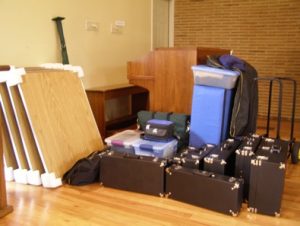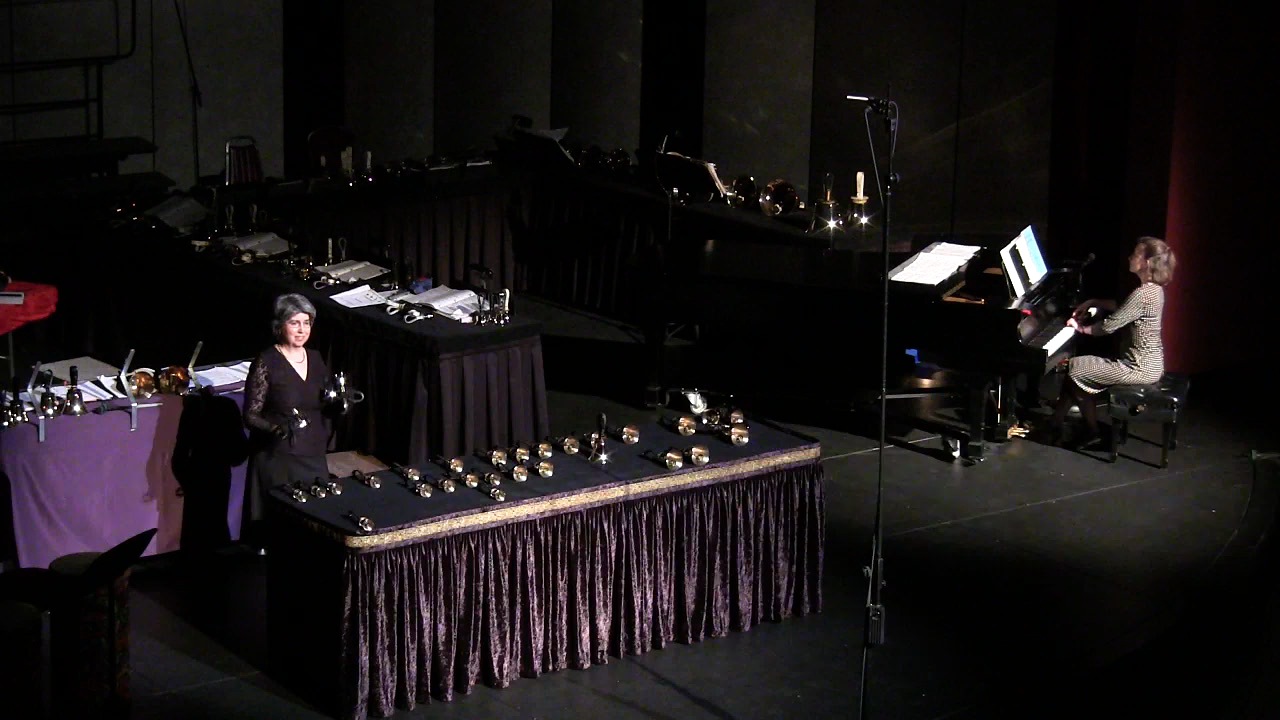At National Seminar, I was thrilled to be asked to write an article for the Jeffers catalog Vibrations. After reviewing the list of topics covered in previous issues, and considering what I was teaching at the time, I decided to write about memorization. This article (published in Holiday 2013 Vibrations) draws from the memorization article previously published on this site, adapted to include suggestions for bell choir musicians and small ensembles, as well as soloists. Continue reading Memorization – Jeffers article
Category Archives: Performance
Stage lighting
While at National Seminar, I had the pleasure of meeting Alison O’Connell at the soloists’ dinner. Ali lives in Australia and is a professional production manager and stage manager. She has a lot of experience working with stage technicians, and had responded to an SOS last year when I needed information for a concert at a performing arts center, where I would be working with a lighting tech for the first time. I knew from prior experience that I needed to spell out my expectations clearly, as hardly anyone is familiar with the idiosyncrasies of solo bells. For example, I had performed in one venue where the sound tech was surprised to learn I wouldn’t stand in one spot through the whole performance. Continue reading Stage lighting
Slideshows
For our recent solo concert, I created my first ever slideshow to accompany a piece, and someone requested I write about it. If projection equipment is available, a slideshow is an excellent way to add variety to a program, almost like adding another instrument. I first started thinking about my slideshow a year ago. I had hoped to present it last spring, but that didn’t work out. The delay allowed me to prepare properly, and even to take some digital photos with the slideshow in mind. Continue reading Slideshows
Accompanists: other instruments
Most solo handbell music uses piano accompaniment. Using other instruments can add variety to a program, but there are disadvantages as well. When buying or arranging music, check whether the other instrument is optional or an integral part of the piece. The more instrumentalists required to perform a piece, the more difficult it will be to schedule not only performances, but rehearsals. Moreover, some venues (like retirement homes) limit the honorarium they’ll pay for a performance to two musicians. So unless you’re going to play the entire program with, say, an organist or harpist, or your accompanist can play multiple instruments at different points in the program, you’ll have limited opportunities to perform pieces requiring other instruments. Continue reading Accompanists: other instruments
Trust your training
I know a successful venture capitalist who reads every newspaper article thinking, how could I make money from this idea? I find myself looking at the world through the lens of, what can this teach me about music? Watching Olympic men’s gymnastics this week reminded me of an important performance principle. One gymnast is coached by his stepfather, who performs a little ritual with him before every routine. He sends him out with the admonition, “Trust your training.” Continue reading Trust your training
Concert planning and logistics: concert week
As I prepared for my last performance of this season, I recorded below what I think about during the week before a concert. You can read about my music preparation at Concert prep cycle – music and the logistics foundation at Concert planning and logistics: time of booking. Proper planning allows me to spread out tasks and keep everything enjoyable. I would find it really stressful to have a lot to do at the last minute. I try to organize well enough that the only thing I need to do on concert day is concert transport and the performance itself. I’ll even move some of that to the day before, perhaps packing up, or even setting up at the venue, if I can. Continue reading Concert planning and logistics: concert week
Concert planning and logistics: at booking
I like to have lots of lead time for planning concerts, and checklists help ensure nothing is missed. It can be challenging to juggle multiple engagements at different stages: concerts under discussion, concerts happening this week, and concerts coming up that need publicity. Continue reading Concert planning and logistics: at booking
Concert prep cycle – music
Concert preparation falls into two broad categories: music and logistics. I’ll talk about music first, and logistics another time. Continue reading Concert prep cycle – music
Concert equipment and transport
 The amount of equipment required is one of the limiting factors in solo handbell performances, and it took a while to sort out the best way to handle it all. For one of my concerts, I transported everything shown here surrounding the organ console and bench. Continue reading Concert equipment and transport
The amount of equipment required is one of the limiting factors in solo handbell performances, and it took a while to sort out the best way to handle it all. For one of my concerts, I transported everything shown here surrounding the organ console and bench. Continue reading Concert equipment and transport
Performance royalties (ASCAP) and copyright
Most copyrighted music has a notation “All rights reserved,” or something similar. Copyright law assigns numerous rights exclusively to the copyright holder, including the right to perform the work publicly. Of course, composers want you to perform their published works, since you have little reason to buy sheet music otherwise. However, royalties are owed to the copyright holder whenever copyrighted music is performed in public. Just buying sheet music isn’t sufficient.
Read here about:
• How to determine whether royalties are owed
• Who must pay performing royalties
• How, when, and where to pay the royalties Continue reading Performance royalties (ASCAP) and copyright
